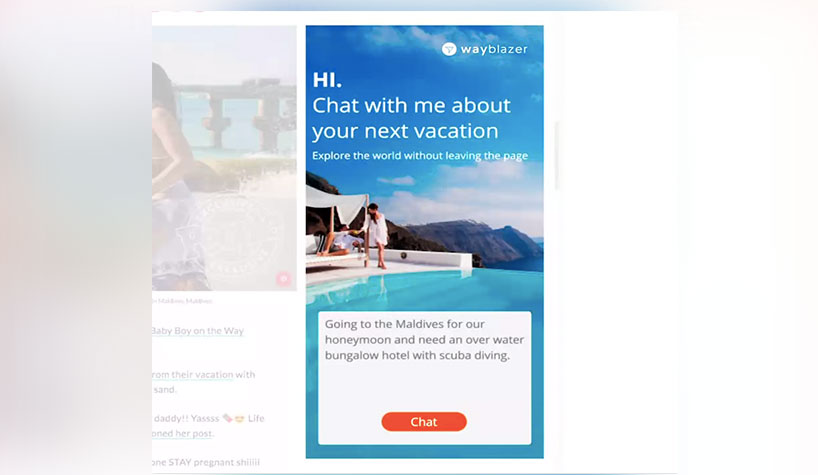
AUSTIN, TX—As indicators prove the economy is getting stronger and consumers place a greater emphasis on experiences rather than products, there’s a demand for travel.
“In addition to strong economic variables and confident consumers with additional disposable incomes, consumer expectations play a major role in this summer’s record-breaking travel season,” said Noreen Henry, CEO of WayBlazer, a B2B travel technology company.
Another factor? The hotel industry is adopting advancements in technology that offer travelers convenience, ease of travel and digital access to the experiences they crave.
“As brands within the travel space begin to adopt new technology, consumers are becoming much more likely to book trips. Consumers want convenience and personalization, and brands are meeting these demands through innovation,” said Henry.
A former Travelocity executive with a passion for travel, Henry is well-versed in the common pain points travelers experience, particularly around travel planning and how challenging it can be to find the best hotel or destination that matches a traveler’s personal trip needs.
“With the advances in artificial intelligence (AI) and digital marketing, however, technology has finally evolved to solve these problems, and travel brands are now interested in leveraging this technology to enhance the overall travel customer journey,” said Henry. “WayBlazer was an early leader in using AI to transform the travel industry and I knew I wanted to be a part of that.”
She added, “WayBlazer’s use of AI was unique in the fact that its intelligent recommendation engine understands user intent and context. Users can make requests like, ‘I’m interested in a romantic getaway in the mountains’ or ‘a family friendly beach vacation with water sports,’ and WayBlazer’s technology provides the most relevant recommendations for each user. Not only does this dramatically improve the user experience, but it drives real results for brands including increases in conversion of 10% or more.”
So, how can WayBlazer help hotel companies to improve conversion? Henry urges hoteliers to prioritize technology that not only improves consumer experiences, but also drives measurable results to their bottom line and look at customer engagement, conversion or loyalty.
“To do this, hoteliers should look for technology partners with proven solutions that can be easily tested and integrated. This might include large technology partnerships like the one recently announced between Marriott and Amazon to start bringing Alexa into its hotel rooms,” she said. “This marks the beginning of the eventual widespread adoption of voice assistants in the travel and hospitality industry. This will enable travelers to search for, purchase and check into flights and hotel rooms entirely through their voice-assisted devices.”
She added, “Hoteliers can also partner with smaller companies like WayBlazer, who offer specific AI solutions. WayBlazer can help hoteliers create a more seamless and convenient experience for all guests. By implementing chatbots that offer personalized recommendations, hoteliers can easily identify customer trends and will then be able to identify certain points in the customer journey in which they need to invest in new technology.”
In order to deliver quality travel experiences, Henry recommends the following:
Meet Guests Where They Are
Hoteliers should shift their focus toward innovation and how they can make the travel experience more convenient and relevant for the modern travel consumer. Engaging with their customers, where and when the customer wants across multiple channels is key to delivering quality services.
Employ Tech-Forward Tools
Given the growth of mobile, social media and digital, consumers have access to a variety of channels when planning trips. WayBlazer’s travel-centric chatbot can interact directly with consumers to help them with trip planning through messaging apps, voice platforms, websites and even via interactive chatbot ads.
WayBlazer continuously is looking for ways to innovate the travel customer experience for its clients.
“Currently, we are focusing on partnerships with established travel brands and exploring adjacent vertical markets where our recommendation engine can provide value for brands,” she said. “We plan to focus more deeply on conversational commerce as a way to transform the discovery and search process and deliver more engaging customer experiences across the travel, hospitality and leisure industries.”